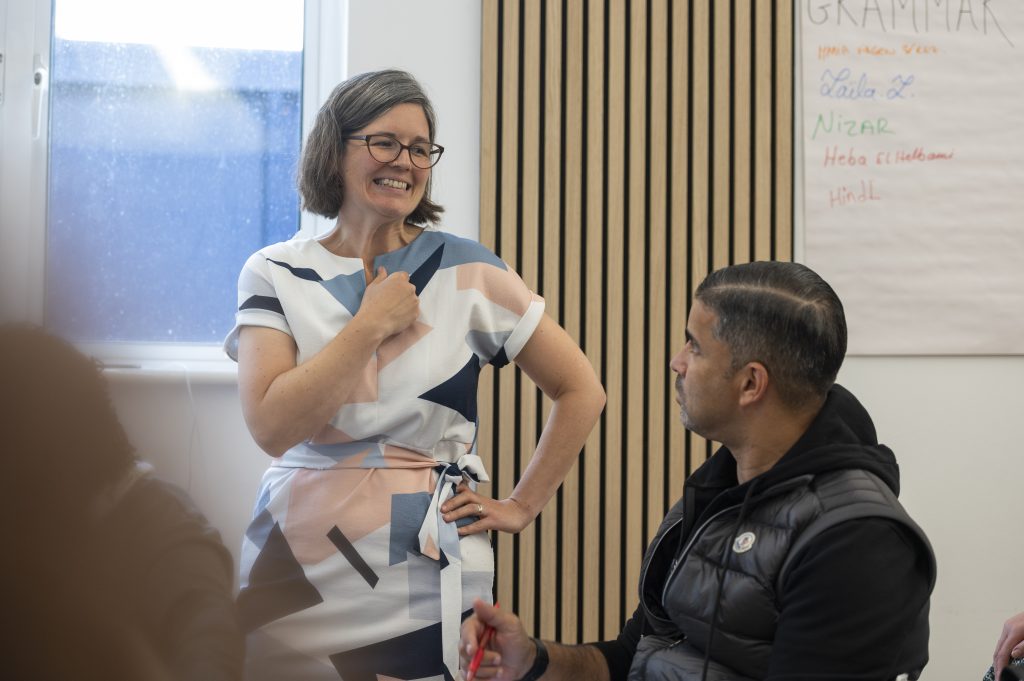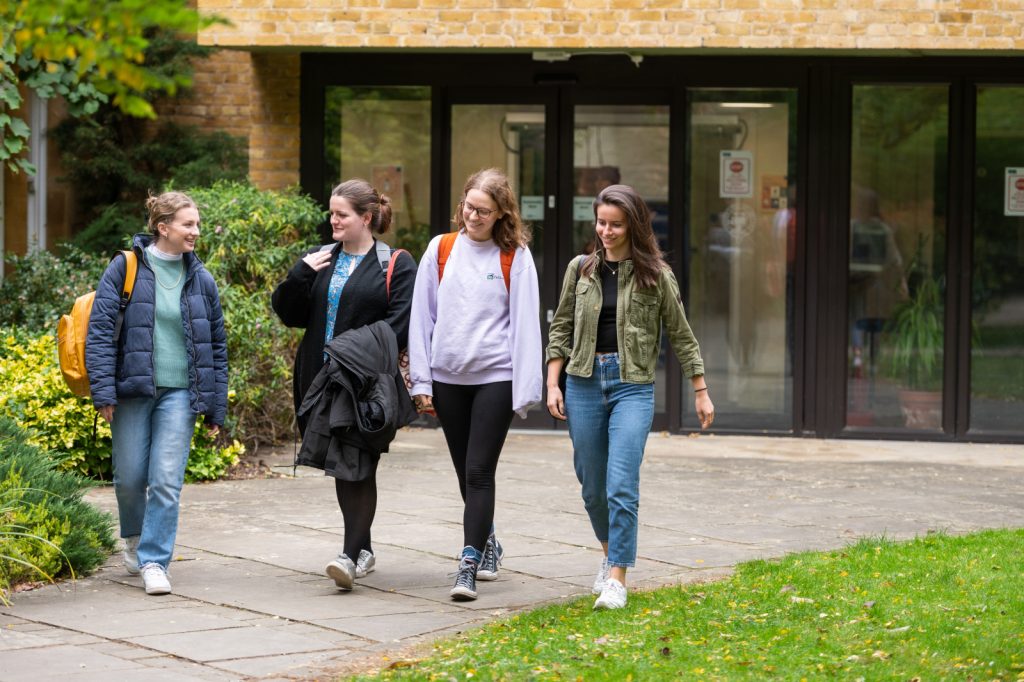Welcome
Our new part-time Postgraduate Diploma has been specifically designed for education professionals working with young children in the national and international settings. The PGDip Early Childhood Education (ECE) is offered on a part-time basis, taking place over three academic terms. The core aims are to promote:
- an understanding of theory and research relating to child development and effective early childhood pedagogy across the cognitive, social and emotional domains, including analysis of their robustness and the information they provide for informing practice;
- a practical understanding of how to engage in research-informed practice, including seeking and critically engaging with available evidence and designing and conducting ones’ own setting-based action research;
- an understanding of cross-cutting themes relevant to research-informed ECE practice and of current issues/debates in the ECE field;
- the application of research and theory to practice through reflection on ones’ own practice, in order to enhance professional performance;
- the skills of independent critical thought, rational inquiry, and self-directed learning;
- critical engagement with, and reflection on, current issues and debates in the field of ECE research and practice through the lens of research and theory.
Hear from Course Director, Dr Sandra Mathers, in this video:
The course
The aim of the course is to ground participants in research evidence on child development and early childhood education to help inform practice.
The course consists of three summatively assessed modules and one formatively assessed module. Across all modules, students will receive a grounding in core knowledge and skills, and cover three key domains of child development and pedagogy:
- play-based, child-centred approaches and environments;
- supporting social-emotional development and wellbeing;
- supporting language, literacy and executive function.
Residential induction week (August)

In the summer before the formal start of term, you will attend a one-week residential module in the Department of Education at Oxford. At the residential week, you will meet your fellow students and course leaders. The week will help to prepare you for the coming year’s study by introducing key themes around research and evidence in ECE, exploring the principles of conducting and interpreting ECE research, introducing you to the University’s IT and library systems, and providing guidance on engaging with research literature and writing for an academic audience.
Module 1: Building the foundations of research-informed practice (Michaelmas Term)

This module will explore in depth the broader picture of ECE research and practice. You will explore ECE from a range of perspectives and cover key theories of early childhood development and learning. You will explore what it means to be a research-informed practitioner, and the types of research that help us understand children’s learning and development and how to support it. You will apply the principles of research-informed practice in four key areas: play-based, child-centred approaches and environments; social-emotional development and children’s understanding of the other; adult-child relationships and interactions in ECE contexts; and supporting children’s mental health and wellbeing. In each area you will explore research evidence on effective practice, and interpret that evidence to reflect on and guide your own professional practice.
Module 2: Supporting language, literacy and executive function through research informed practice (Hilary Term)

This module focuses on language, literacy and executive function and how to support it through activities, interactions, play and developmentally appropriate intervention. You will cover theory and empirical research relating to the development of oral language and literacy and how to support it (including for children with delayed language). You will explore bilingualism and biculturalism in the early years context, and research evidence on how to support the development of multilingual learners. You will also explore theory and research on the development of executive functions, and how early educators can support young children’s executive functions. The module will prepare you to reflect on what has been shown to be effective in a variety of contexts and encourage you to interpret that evidence for policy and practice in your own school/setting.
Module 3: Independent study – practice-based research project (Trinity Term and the Long Vacation)

You will build on your learning in Modules 1 and 2, to plan, conduct and write up an independent study/project relating to early years practice. Supported by your academic supervisor, you will formulate a research question to be addressed through action research in your own professional context, or through a literature-based enquiry. You will conduct the study and write it up in a dissertation of between 10- and 15,000 words. The focus of your study will be unique to your professional development goals and circumstances, and will provide you with the opportunity to address to real-world questions about working in early childhood contexts.
Assessment

Assessment will take the form of both formative assessment and summative assessment. Formative assessments take place throughout the programme. There will be three summative assessments: one 2,500 word paper at the end of Module 1, one 2,500 word paper at the end of Module 2, and a 10,000-15,000 research report based on independent study. All summative assessments are uploaded to the University’s submission portal.
FAQs
What should I include in my statement of purpose and how long should it be?

Your statement of purpose should tell us why you are interested in following this particular course and how you feel that you will benefit from it. You should aim to submit one to two pages, which also includes an account of your career to date and the benefits of any professional or academic learning you have already undertaken. Please include your commitment to the subject, beyond the requirements of the course, and your capacity for sustained and intense work.
Do I need to attend the residential unit and is there an additional cost?

Yes, participants are required to attend the one-week residential module in August prior to the formal start of the course, which covers introduction to:
- Key themes around research and evidence in ECE
- Exploration of the principles of ECE research
- The VLE (Canvas) which you will use while taking part in the course
- The Bodleian Education Library
- Guidance on engaging with research literature and writing for an academic audience
You will also have opportunity to spend time with your fellow participants and course leaders.
The residential lasts for five days, running from Monday to Friday. Participants are expected to find and pay for their own accommodation and subsequent refreshments. Further information is provided on entry to the course.
How much time will I be expected to study?

Terms at Oxford are 8 weeks long. Students will be provided with one 1.5-hour pre-recorded lecture for each week of the taught modules, accompanied by a mix of pre- and post-lecture readings, forum discussions, and independent and collaborative activities. Each week, students are expected to spend 4 hours on pre- and post-session reading, and 4 hours on post-session tasks.
The practice-based research project module consists of seven hours of face-to-face support in the form of individual tutorials with your academic supervisor, and a further three hours of distance support (e.g. your supervisor reading and responding to drafts of your writing, or responding to enquiries about your project by email). Face-to-face tutorials will be distributed across the course, with two hours in Michaelmas Term, two hours in Hilary Term and three hours in Trinity Term.
How will my work on the course be supported?

You will be allocated a supervisor and be able to access the University’s Virtual Learning Environment (Canvas) to discuss aspects of your work with other students. Other activities such as supervisory meetings will take place remotely, usually via MS Teams.
Who should I choose as my referees?

You are required to provide the details of three referees on your application form. We are looking for references from your employer, and an academic reference if possible. Please note that, as part of the University regulations, the Graduate Admissions Office is unable to release your application to us until you have provided at least two references with your application. Once we have received and considered your application we will then make a decision whether or not we wish to pursue the third if you have not already provided it.
How much will it cost to study and live in Oxford?

To find out how much it will cost to undertake your studies at the University, please visit the Fees and Living Costs webpage for details. As this is a distance degree, the only living costs in Oxford are associated with a one-week compulsory residential week at the start of the programme.
Will I have college membership?

Students following diploma courses are not affiliated with a college at Oxford University.
Will I take part in the matriculation ceremony?

No, students on this course do not matriculate.
Couldn’t find your answers under our FAQ section?
Please direct any enquiries to our administrative team, and they will be happy to assist you.
Email: pgdip.ece@education.ox.ac.uk







